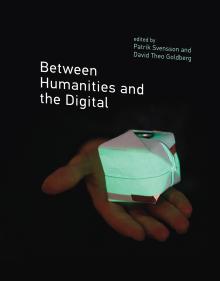Call for Papers
The 30th Annual Symposium on African American Culture & Philosophy
Exploring the “Humanity” in the Digital Humanities: Africana/Black Studies’ Perspectives on the Digital Humanities
Keynote Speaker: Abdul Alkalimat, University of Illinois-Urbana Champaign
Plenary Speakers: Marisa Parham, UMass-Amherst & Kenton Rambsy, University of Texas-Arlington
African American Studies and Research Center Purdue University
West Lafayette, Indiana
December 1-3, 2016
The African American Studies and Research Center invites scholars, practitioners, and graduate students to submit proposals for papers, panels and digital presentations for “Exploring the “Humanity” in the Digital Humanities: Africana/Black Studies’ Perspectives on the Digital Humanities,” its 30th Annual Symposium on African American Culture & Philosophy to consider the relationship between the digital humanities and Africana/Black epistemological frameworks that ask, “What Does It Mean to Be Human?”
Work that is closely associated with the theme will be given preference during the review process. We seek papers and panels from across the disciplines on such sample topics as:
- Africana/Black Studies & Digital Recovery
- Africana/Black Digital Genealogies
- Africana/Black Studies & Spatial Humanities
- Africana/Black Studies & the Digital Arts
- Data Visualization in Africana/Black Studies
- Text & Data Mining in Africana/Black Studies
- Africana/Black Studies & Digital Scholarly Communication
- Africana/Black Studies & Digital Humanities Pedagogy
- Creation and Curation of Africana/Black Studies Digital Resources
- Africana/Black Studies & Software Design and Modeling
- Africana/Black Studies & New/Social Media
- Game Studies, Digital Humanities & Africana/Black Studies
- Africana Studies: Intersections of the Humanities and Social SciencesThe deadline for individual and panel abstract submission is June 6, 2016. Abstract submissions of up to 250 words should be sent to:
Ronald J. Stephens, Director, African American Studies and Research Center
Purdue University
College of Liberal Arts, School of Interdisciplinary Studies 29th Symposium on Philosophy & Culture
Steven Beering Hall, Room 6176
100 North University Street
West Lafayette, IN 47907-2098
Or email: aasrc@purdue.edu with abstract in the subject line.


